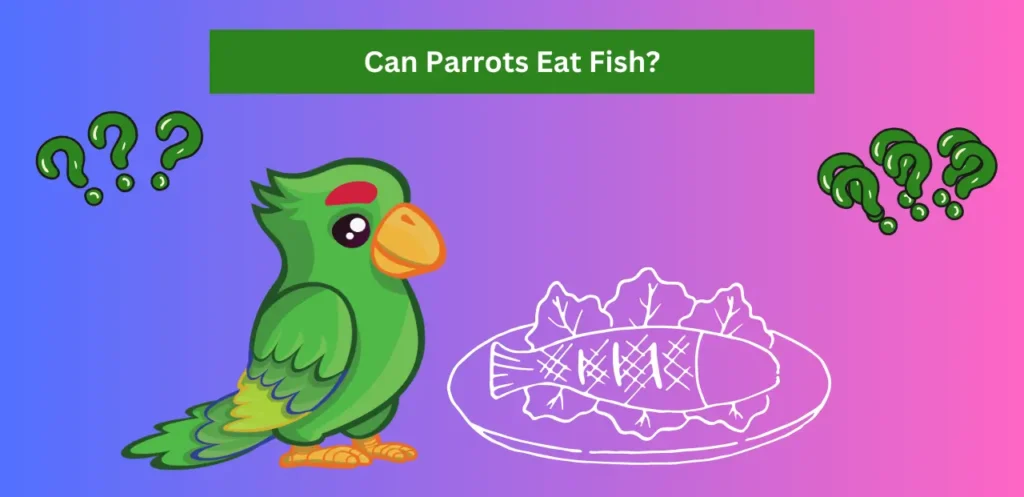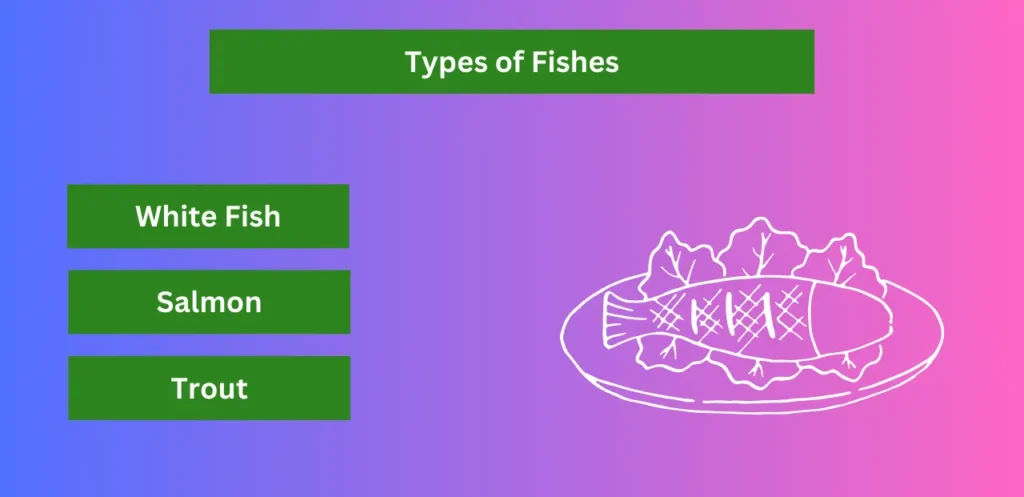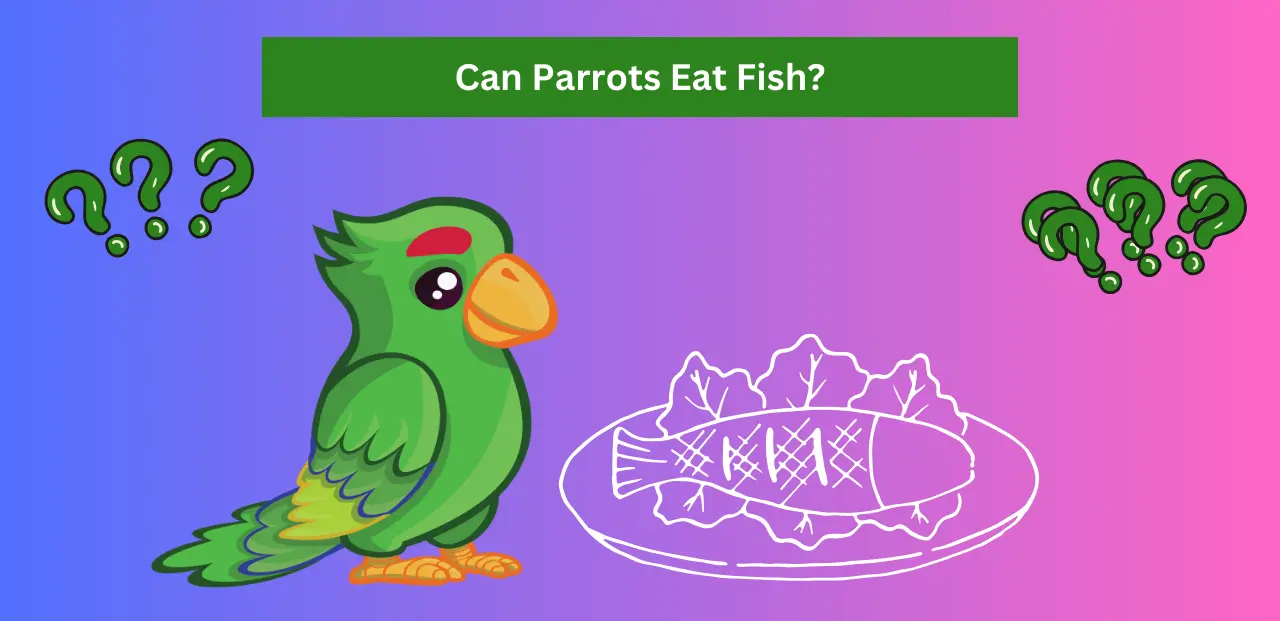Birds most especially parrots are interesting creatures characterized by a high level of education and brightness, beautiful colors, and unique feeding habits. Most of the time as pet owners we wonder what is right or healthy for our feathered friends. One such question is: Can parrots eat fish? In this guide, we shall cover aspects of nutrition, preparations, and which fish is best for your pet parrots.
Parrots Safely eat fish but always give in moderation that can be digested easily.

6 Nutritional Benefits of Fish for Parrots
It has been discussed that fish might contain different useful nutrients for parrots if provided in reasonable amounts. Although most parrots are omnivores some species will accept and thrive on small portions of fish occasionally. Here are some of the key nutritional benefits of fish for parrots:
- High-Quality Protein: Fish is a good source of protein as it comes in handy for tissue repair, muscle build-up, and general body well-being in parrots. The protein in fish is helpful in those types of birds that need more protein during reproduction, molting, or during diseases.
- Omega-3 Fatty Acids: There are two types of omega fatty acids: Omega 3 and Omega 6; and they are found in fish products such as salmon and mackerel. These healthy fats help in improving brain activity, improve feather and skin layers, and support a healthy heart. Omega-3s also support inflammation decrease which can be greatly beneficial if your parrot has problems with joints or skin.
- Vitamins and Minerals: This food is especially rich in vitamins and it contains many important minerals. For example:
- Vitamin D: It is made up of many vitamins and minerals, including calcium, and folic acid, which is essential for calcium absorption and strong bones.
Vitamin B12: As a B vitamin, it is essential to nerve health, the manufacturing of red blood cells, and metabolism.
Iodine: Available in fishes that facilitate the thyroid gland in the body.
Amino Acids: Proteins as nutrients are well-known to meet parrots’ muscle, skin, and feather requirements, and fish and for this reason contain quality amino acids. - Easily Digestible: Fish as many already know is a delicate source of protein that is rather easier on the tummy of a parrot as compared to most forms of animal protein.
- Iron: Fish also has reminiscing effects; it is well equipped with iron which is very vital in the synthesis of hemoglobin and the avertment of anemia.
Types of Fish Suitable for Parrots
It may shock many people to hear that not all fish are suitable for parrots. Here are the best options:
- White Fish: For instance, cod, haddock, and tilapia fish. These preserve low fat and are also not associated with strongly flavored foods.
- Salmon: Contains useful omega-3 fats but fats should be fed in moderation.
- Trout: Contains all the necessary nutrients and is classified as safe when consumed in reasonable amounts.
Do not feed your parrot fish with high mercury, which is toxic to parrots such as tuna or swordfish.
How to Prepare Fish for Parrots

Birds are omnivores, and it is quite easy to prepare fish for parrots but there are guidelines that you need to follow to ensure the fish is healthy fit, and suitable for the bird. Here’s a guide on how to prepare fish for your parrot:
Choose the Right Fish
Use fillet fish without skin, fresh or water, and low in mercury including salmon (wild caught), sardines, mackerel, anchovies, tilapia, and cod.
Cook the Fish
It is particularly important not to feed the parrots with raw fish because they have bacteria, parasites, or even pathogens that are poisonous to the bird.
Cook the fish using gentle methods:
- Baking: Put the fish on a baking tray and bake in a moderately hot oven (approximately 350 F, 175 C) until it is done a delicate pink in the center (it will take about 10-15 minutes as a maximum for a 1-inch thick fish).
- Steaming: Steaming is still another technique of food preparation that utilizes heat to cook food without the loss of nutrients.
- Grilling: Fish can also be grilled but should not be barbecued with browning or burnt to increase its calorie content.
Do not use oil, butter, or seasoning: oils, salt, and spices are toxic to parrots. This means that even when preparing fish, there should never be anything added to the fish such as garlic, butter, or pepper.
Remove Bones
Fish bones are dangerous because they can stick down the throats of the parrots and as a result cause choking, so ensure you remove all bones when serving your parrot with fish.
With tweezers or your fingers, feel through the flesh to check for easily overlooked bones and extract those also.
Cut into Small Pieces
- As the fish boils now chop them into small pieces that your parrot will be able to take in its mouth.
- These should be in sizes appropriate for grasping with the beak or holding in a foot and tearing with a beak.
Cool the Fish
- What makes the fish appropriate to offer the parrot is if the fish has cooled down to a safe temperature.
- Delicate tissues in the mouths and throats of birds can be damaged by hot food and liquids, so should be served at room temperature or slightly warm.
Serve with Variety
- Always accompany the fish dishes as part of the healthier meal plans. It can be paired with:
- Fruits – especially those that are red (like apples, mango, or berries)
- Monday vegetables (spinach, carrot, or green pea)
- Rice or cooked beans preferably red beans (for added fiber)
- Fish should merely form part of the parrot diet occasionally and not regularly.
Monitor for Any Negative Reactions
- You should also start small if this is the first time your parrot is being given fish since this may cause some form of irritation or even a Texan in the digestive system of your parrot.
- Listen for any note of diarrhea, vomiting, or if they take on a strange behavior different from the normal. If you observe any of these signs then cease the feeding of the fish species and seek services from a vet.
Avoid Canned Fish
- Canned fish such as sardines or tuna might be easy, but they have a lot of hidden sins: too much salt, preservatives, or oil are not good for parrots. However, when you do decide you want canned fish, make sure that they are canned in water without any added salt.
Provide Fresh Fish Only
- Fish food should not be stored for a long time as this affects the quality of food. When you prepare and serve fish you are advised to serve it between 1-2 hours to avoid cases where it becomes spoilt.
- Store any leftovers in the refrigerator and do not consume fish that has been left over for more than one day to help avoid bacterial buildup.
Conclusion
Parrots can eat fish safely but always in moderation, but they should be provided sparingly and with proper preparation. While fish offers many nutritional benefits, it also carries risks that require careful management. By following best practices, you can ensure that fish remains a safe and enjoyable treat for your parrot.
FAQs About Can Parrots Eat Fish?
Can parrots eat raw fish?
No, raw fish can carry harmful bacteria and parasites. Always cook fish thoroughly before offering it to your parrot.
What is the best fish for parrots?
White fish like cod and haddock are the safest options due to their low fat and mild flavor.
How often should parrots eat fish?
Fish should be offered no more than once or twice a month as an occasional treat.
Are there any fish to avoid?
Yes, avoid fish high in mercury, such as tuna and swordfish.
Can I feed my parrot fish bones?
No, fish bones are a choking hazard and should always be removed.

Abubakr is a passionate parrot enthusiast based in Pakistan. He shares his life with his vibrant parrot, Peto, and is dedicated to understanding parrot nutrition, behavior, and training. Through his experiences with Peto, Abubakr aims to gain a deeper insight into the needs and personalities of parrots and to share his knowledge with fellow parrot lovers. With a focus on the nutrition of conures, Abubakr is excited to connect with like-minded individuals and learn from their experiences.
